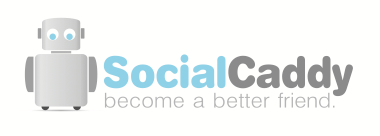Jon Vlachoyiannis
CTO SocialCaddy
SocialCaddy

As all maniac scientists do, Jon experiments with new technologies every
single day and creates stuff that normal people find impossible. He fell
in love with Erlang three years ago, trying to create a service that
connects web applications to Second Life. Now, he uses Python (his
all-time darling) with Erlang to build his latest prediction model
software and spicies it up with frameworks (mostly Rails and web2py).
Jon has been programming from the age of eight, has worked for companies, leaders in their respective fields, ranging from photorealism algorithms to digital signage to geocoding applications to facebook applications and has designed and organized projects for multinational companies like P&G; deep in his heart though, he is an opensource geek and inventor. He won the "New Scientist" award for his next generation virtual machine (gNVM) at the 1rst eRA conference, gained 3rd place in a national web innovation contest held in Greece with his non-profit KarmaEffect.org and has many other opensource projects running in parallel like smallbasic.sf.net.
These days he spends most of his time at SocialCaddy, bringing together Erlang and AppEngine.
Jon has been programming from the age of eight, has worked for companies, leaders in their respective fields, ranging from photorealism algorithms to digital signage to geocoding applications to facebook applications and has designed and organized projects for multinational companies like P&G; deep in his heart though, he is an opensource geek and inventor. He won the "New Scientist" award for his next generation virtual machine (gNVM) at the 1rst eRA conference, gained 3rd place in a national web innovation contest held in Greece with his non-profit KarmaEffect.org and has many other opensource projects running in parallel like smallbasic.sf.net.
These days he spends most of his time at SocialCaddy, bringing together Erlang and AppEngine.
- John's blog
- Follow @jonromero on Twitter

Jon Vlachoyiannis is Giving the Following Talks
Clash of the Titans: Erlang Clusters and Google Appengine
We are going to talk about how SocialCaddy, the first CRM for friends, uses the best of two worlds: Google AppEngine as a front-end system, ready to handle a lot of traffic without needing any administration from your part (set and forget); and an Erlang cluster, running on dedicated servers doing background tasks and sending data with lightning speed to AppEngine.
AppEngine is the best thing since sliced bread. But it's not particularly good for crunching data. Meet Erlust. Erlust (the cluster behind www.SocialCaddy.com) communicates with AppEngine via JSON requests. AppEngine sends Erlust the source code to be executed and the number of nodes to be used, and Erlust is responsible to "map and reduce" the data across nodes.
Due to the fact that many libraries (especially for social networks) have better support for a specific language, Erlust is language agnostic, meaning that it can run in parallel source code from many languages. Finally, Erlust exposes the data back to AppEngine by opening many concurrent connections.
AppEngine is the best thing since sliced bread. But it's not particularly good for crunching data. Meet Erlust. Erlust (the cluster behind www.SocialCaddy.com) communicates with AppEngine via JSON requests. AppEngine sends Erlust the source code to be executed and the number of nodes to be used, and Erlust is responsible to "map and reduce" the data across nodes.
Due to the fact that many libraries (especially for social networks) have better support for a specific language, Erlust is language agnostic, meaning that it can run in parallel source code from many languages. Finally, Erlust exposes the data back to AppEngine by opening many concurrent connections.
